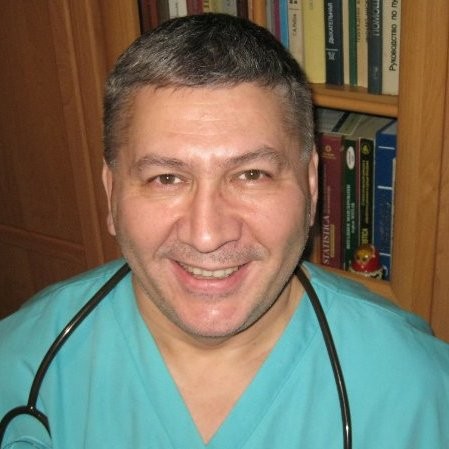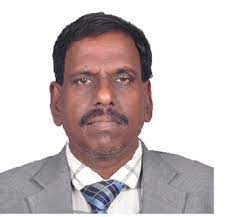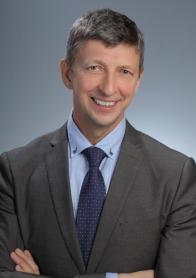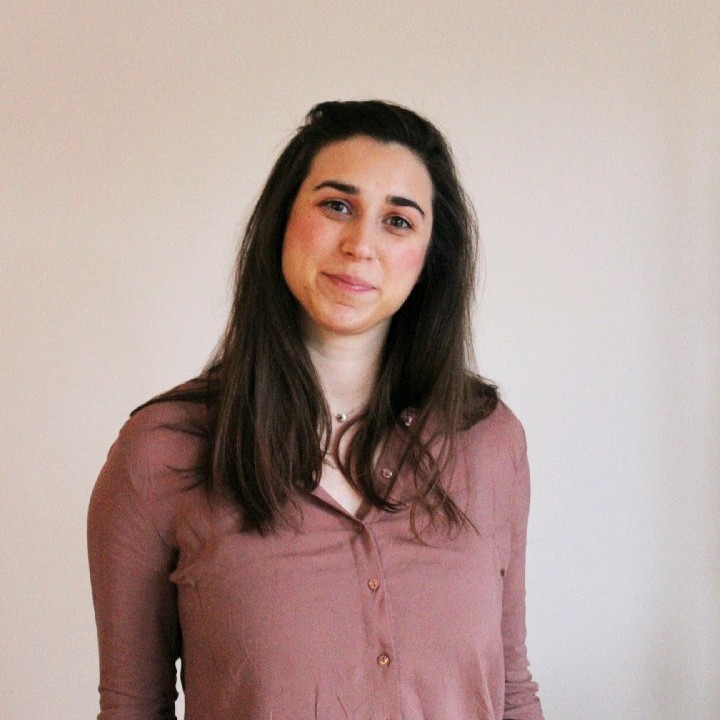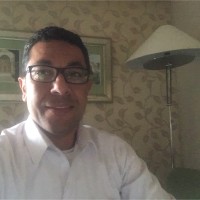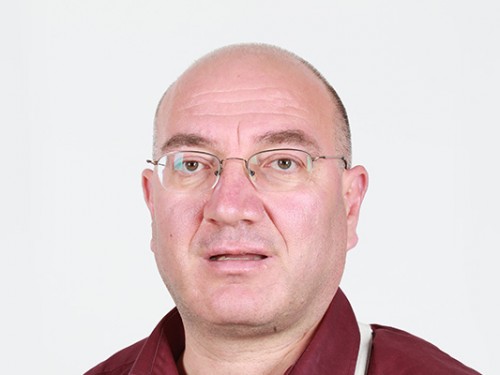About Conference
Conference Series is an open resource platform that conducts 3000+ global events including International Conferences, Workshops, Symposia, Trade Shows, Exhibitions and Science Congresses in all the major scientific disciplines, including Clinical, Medical, pharmaceutical, Engineering, Technology, Business Management and Life Sciences across America, Europe, The Middle East, and Asia-Pacific. It is reaching over 25 million researchers, scholars, students, professionals and corporate entities all over the globe.
Cardio Thoracic Surgery 2022 welcomes attendees, presenters and exhibitors from all over the world. We are delighted to invite you all to attend for the “27th International Conference on Cardiovascular and Thoracic Surgery ” which is going to be September 14-15, 2022 Sydney, Australia
Theme: "Exploring the new heights of excellence in Cardiovascular and Thoracic Surgery"
Cardiology conferences regards each individual to go to the "Cardio-Thoracic Surgery 2022” amidst where the organizing committee is gearing up for an exciting and informative cardiology conference program including plenary lectures, symposia, workshops on a variety of topics, poster presentations and various programs for participants from all over the world. We invite you to join us at the Cardiac Surgery-2022, where you will surely have a meaningful experience with scholars around the world. All members of the Cardio-Thoracic Surgery 2022 organizing committee are looking forward to meet you on webinar. We have dealt with various compelling surgery events, cardiology gatherings and developed incredible relations bringing the researchers and associations together.
Cardio Surgery 2022 will have world-class Scientists, Teachers, Surgeons and Cardiologists to discuss methodology for ailment remediation for heart, Thoracic region, Electrocardiography, Heart Failure, Nuclear Cardiology and stroke. The assembling will be dealt with the subject “Exploring the new heights of excellence in Cardiovascular and Thoracic Surgery".
Why to attend?
Cardiac Surgery 2022 brings together individuals who have an interest in different fields of Cardiology like Cardiac diseases, Cardiac Surgery, Thoracic Surgery, Heart Stroke, Heart diseases and Nursing. It is a forum to explore issues of mutual concern as well as exchange knowledge, share evidence, ideas, and generate solutions. With people from around the world focused on getting some answers concerning Surgery, this is your single most obvious opportunity to accomplish the greatest accumulation of individuals from the mending focuses, Universities, bunch, etc. This Cardiology Conferences in 2022 will coordinate appears, disperse information, and meet with recurring pattern and potential investigators and get name affirmation at this 2 day event. Broadly acclaimed speakers, the most recent frameworks, methodologies, and the most current updates in Surgery field are indications of this conference. This Cardiology Conferences will help in frameworks organization, B2B uniting amidst specialists and academicians.
Target Audiences:
• Cardiologists
• Doctors
• Cardiothoracic surgeon
• Hearth specialists
• Professors
• Physician
• Surgeons
• Pediatric Cardiologist
• Vascular Surgeon
• Students of cardiology
• Relates to heart, lungs
• Nurses
• Orthopaedic surgeons
• Pulmonary specialists
• Respiratory Physician
Why Sydney, Australia?
Sydney, city, capital of the state of New South Wales, Australia. Located on Australia’s southeastern coast, Sydney is the country’s largest city and, with its magnificent harbour and strategic position, is one of the most important ports in the South Pacific. In the early 19th century, when it was still a small convict settlement and the first settlers had barely penetrated the interior, it had already established trade with the Pacific Islands, India, China, South Africa, and the Americas.
The first sight of Sydney, whether from the sea or the air, is always spectacular. Built on low hills surrounding a huge harbour with innumerable bays and inlets, the city is dominated by the bulk of the Sydney Harbour Bridge, one of the longest steel-arch bridges in the world, and the Opera House, with its glittering white shell-shaped roofs that seem to echo the sails of the many yachts in the adjacent harbour. The intricate confusion of water and buildings makes a striking impression either by day or by night.
Tourism:
Sydney is a Centre for international tourists. Hotel and motel accommodations and restaurants are found throughout the city, though they are especially numerous in central Sydney and the Kings Cross area to the east of the central business district. It is possible to find restaurants offering almost every kind of international cooking, though Sydney’s famous oysters are among the most popular dishes. The Darling Harbour area just west of downtown includes the city’s first modern complex for conventions, popular concerts, indoor sports, and political assemblies. The city’s first gaming casino opened in 1995.
Transportation:
Since 1855 Sydney has had a railway linking the city Centre to some of its suburbs. Between World Wars I and II, this radial suburban rail system was electrified, and construction of the city’s underground railway was begun (the first section was opened in 1926). In 1932, after the completion of the Harbour Bridge, the north shore was linked directly by rail to the city. Both surface and underground railway extensions were completed to the eastern suburbs in 1979.
In spite of development and the existence of an extensive metropolitan bus service, public transport has failed to keep pace with demand. Since World War II, Sydney, like so many other cities, has fallen victim to the automobile, and the resulting traffic problem has been made worse by the geographic layout of Sydney. A high proportion of those people who work in the central business district make their homes in the outer suburbs and must find their way to and from the city by a limited number of routes. Most of those living on the North Shore, for instance, must cross the harbour by the Harbour Bridge or via an adjacent tunnel, which opened in 1992. There is a second bridge, at Gladesville, which takes some of the traffic, and there are other bridges farther to the west, but it is difficult for north-south traffic to bypass the city. Moreover, traffic congestion is aggravated by the narrowness of the streets. Attempts to relieve congestion by building express highways have been only partially successful, and Sydney, like other cities, has taken measures to ban all traffic from certain sections of the inner city. To this end a pedestrian plaza was created in Martin Place, in the Centre of the city, in 1971.
City layout:
Greater Sydney is spread over a vast area that stretches from the Blue Mountains in the west to the Pacific Ocean in the east and from the southern shore of Lake Macquarie in the north to south of Botany Bay. Only about one-third of this region is classified as urban, but the great bulk of the region’s population lives in the urban area. A pattern of suburban sprawl, caused partly by the cheapness of land in earlier days and by the determination of ordinary Australians to own their own houses and gardens, has caused problems for the authorities responsible for sewerage and transport. The sprawl is also in marked contrast to the comparatively small and compact central business district, which is crammed into a narrow rocky peninsula between two arms of the harbour within the City of Sydney proper.
The same contrast can be seen in the style of buildings. Whereas most of the houses in the suburbs are one-story bungalows built of brick or wood, numerous buildings in the central business district—where land costs are much higher—are tall multistory structures. The rapid development initiated in the 1960s has transformed the city Centre, which now looks like a smaller Manhattan rising from the shores of the harbour, though in fact most of the buildings are not high by North American standards. Soaring above downtown is the Sydney Tower (completed 1981; spire added in 1991), which reaches a height of more than 1,000 feet (305 meters) and contains restaurants and an observation deck. Additional business Centre’s have sprung up in North Sydney, which is linked to the City of Sydney by the Harbour Bridge, and Parramatta, about 15 miles (25 km) west of the city Centre.
The standard of architecture in the city is generally mediocre, though there are a few handsome buildings surviving from the 19th century and a few contemporary buildings of distinction, including the brilliantly designed Opera House. The magnificent Macquarie Street, which leads down from Hyde Park to the Opera House, is lined by all of the important government buildings of the 19th and 20th centuries. Yet the general effect of Sydney is attractive, and the innumerable bays and arms of the harbour, stretching into the land and providing unexpected views from almost every street, make it a most pleasing city.
People of Sydney:
Sydney was founded by the British, and the largest proportion of its citizens is still of British stock, if that term is extended to include persons of Irish descent. In the period after World War II, however, Australia took in large numbers of immigrants from other European countries and from Asia, including people of Lebanese, Arabic, Chinese, Turkish, and Vietnamese origins. New Zealand also provides a large number of immigrants. Many of these newcomers settled in Sydney. Some of the inner suburbs have a distinctly Greek or Italian character, and almost every suburb has its variety of ethnic restaurants. There is a Chinatown, and one suburb, Redfern, has a small community of Aboriginals living under somewhat depressed conditions.
The two largest Christian denominations are Anglican and Roman Catholic, each with its cathedral, but Sydney also has Muslim mosques, Jewish synagogues, and Buddhist temples, as well as the churches of many other Christian denominations.
Economy:
Manufacturing and services:
About three-fourths of the manufacturing labor force of New South Wales, and about one-fourth of that in Australia, is employed in the Sydney region. Some two-thirds of Sydney’s eligible working population is in the work force and of this a small and diminishing proportion is employed in manufacturing, with the rest in service-related activities. There is no predominant industry in the city itself, though oil refining in the area is important. Sydney has always been essentially a city of government and of local, national, and international commerce, as well as a Centre of shopping, culture, and entertainment for the state of New South Wales. In the 1970s Sydney superseded Melbourne as the country’s financial Centre, and it is now the top choice for international corporate headquarters, especially in activities such as banking, computers, and mining. Sydney’s primary wool market is headquartered at the Wool Centre, which opened in 1975.
Cultural Life:
Sydney is, above all, a city for physical enjoyment. Few great cities in the world offer such unrivalled opportunities for swimming, surfing, sailing, and other outdoor sports. It is still possible to swim from several beaches in the harbour itself though water pollution remains a concern and the surf beaches to the north and south of the city are world famous. One of these, Bondi, is a short drive from the city Centre. Some of the beaches to the north of the city, especially those on the Palm Beach peninsula and in Manly, are exceedingly beautiful. The surf is good, though variable, and made comparatively safe by voluntary lifesaving clubs, which provide guards and rescue equipment on all beaches throughout the summer months. Sydney is also a city of yachting. On any weekend the harbour is covered with sails of every shape and size, while Pittwater, an inlet 15 miles (25 km) to the north, is almost equally popular.
Session/ Tracks
Track 1: Cardiology
Cardiology attributes first data on clinical, pre-clinical and primary lookup as properly as new visions from medical prevalence and topical complete evaluation in selected fields of cardiology disease. Cardiology is a branch of internal medication that offers with the therapy of heart and blood vessels disorders. A heart specialist is a man or woman treating heart disorder or cardiovascular disease. Heart ailment buddies specially to the heart, while cardiovascular disorder impacts the heart, the blood vessels, or both. two The significance of cardiology that is currently happening at the social group, educational, administrative, health care, and professional levels, transitions that necessarily yield novel textual contexts for the convention of cardiology and for its professionals.
Keywords: Cardiology Conference | Heart Conferences | Cardiac Surgery Meetings | Cardiology Meetings | Heart Congress | Cardiothoracic Meetings
Track 2: Cardiac Surgery / Cardiovascular Surgery
With the development and changes in technology, cardiac surgical operation is the forefront of these changes. Cardiac surgical procedure is the surgical operation of the heart or vessels. Cardiac surgical operation is carried out to correct complications of congenital coronary heart disease, valvar heart disease, coronary heart diseases due to a number of causes, which consist of endocarditis, rheumatic coronary heart disease, and atherosclerosis. Other Cardiac surgical procedures consist of Coronary Artery Bypass Grafting, Aneurysm Repair Minimally Invasive Heart Surgery, Ventricular Assist Devices, Heart transplantation and a good deal more. Healthy valves are open and shut in a precise way as the heart pumps blood. Demand for well-trained cardiac surgeons continues to grow, and strategies to strategy cardiac surgical operation safely and efficaciously proceed to evolve.
Keywords: Cardiology Conference | Heart Conferences | Cardiac Surgery Meetings | Cardiology Meetings | Heart Congress | Cardiothoracic Meetings
Track 3: Cardiovascular diseases
Over the respective years, a tremendous amount of cardiac surgery stipulations has been learned about the determinants of cardiovascular ailments as well as how to carry down CVD incidence and demise rate. The loss of life charge proportion of cardiac surgical operation in CVD (30%) is equal to that due to contagious diseases, nutritional adequacy, and maternal and perinatal stipulations combined. Cardiovascular diseases are the set of problems of heart and blood vessels. A cardiac assault or stroke may additionally be the first warning of the underlying disease. Pain in the core of the chest and pain in the left shoulder, arms, elbows, jaw, and returned are the signs of the heart attack whereas the signs and symptoms of the cardiac stroke are the unexpected weak point in the face, arm and the leg, most regularly on the one aspect of the body. The desires of the graph are growing attention of the trouble of CVD, Creating a surrounding that helps and keep health, encouraging private and public duty for true wellness.
Keywords: Cardiology Conference | Heart Conferences | Cardiac Surgery Meetings | Cardiology Meetings | Heart Congress | Cardiothoracic Meetings
Track 4: Cardiovascular devices and Instruments
The designing and fabrication of cardiology gadgets present specific challenges. The cardiology units play an integral role in protecting returned the lives of patients, which suggest they ought to be absolutely certain, sometimes over an extended time period. Other disputes can consist of the complexity of the cardiology gadgets and their elaborate nature. Devices are designed to meet the disturbing wants of cardiovascular surgeons that are used to deal with cardiology disorders in cardiac surgery. Prosthetic devices have been used for a long time to treatment cardiology diseases. The fundamental pacemaker was implanted over forty years ago, and the implantable digital device was first used in the early 1980s. But over the remaining few years have witnessed an extend in each the sorts of cardiology gadgets being tested for heart-failure remedy and in the optimism of famend cardiac surgeons about their usefulness in cardiac surgery. International requirements have been assigned to make certain cardiology system meet the biggest level of performance
Keywords: Cardiology Conference | Heart Conferences | Cardiac Surgery Meetings | Cardiology Meetings | Heart Congress | Cardiothoracic Meetings
Track 5: Diabetes, Obesity, and Stroke
According to Xiquan Zhang, Patent foramen ovale (PFO) has been implicated in the pathogenesis of cryptogenic stroke, arterial desaturation, decompression illness, and migraine. Percutaneous PFO closure is an option for patients with a cryptogenic stroke caused by the paradoxical embolism through the PFO. Among patients with PFO and cryptogenic stroke, closure has reduced recurrent stroke and has a statistically significant effect on the composite of stroke, transient ischemic attack (TIA), and death in adjusted analyses. Percutaneous closure is the preferred treatment, because it results in a smaller wound and a lower rate of postprocedural complications than open heart surgery.
Keywords: Cardiology Conference | Heart Conferences | Cardiac Surgery Meetings | Cardiology Meetings | Heart Congress | Cardiothoracic Meetings
Track 6: Cardiovascular medicine
In cardiology, few medical disciplines have been as decided via the impact of randomized controlled trials as cardiovascular medicine. The randomized trial has seemed as the chief technique by way of which new cardiac surgical treatment medical cares are evaluated, whether or not for the therapy of hypertension, acute myocardial infarction, and use of specific interventional techniques, cardiology devices, or main prevention. Cardiovascular tablets are used in any way to treat prerequisites of the cardiology system. Many agencies of cardiovascular retailers are current to cure the number of cardiology conditions. They are a complicated team of drugs with many being used for multiple cardiology diseased conditions. Prescription tablets and cardiology medicines for diseases relating to the anatomical structure and reason of the coronary heart and blood vessels. These cardiology medicinal drugs assist to forbid noxious clots from forming in the blood vessels prevent the clots from becoming better and inflicting extra serious problems. The cardiovascular scientific trials of the succeeding one-fourth century will want to take larger benefit of an growing appreciation of the imperative biology of cardiology and some cardiovascular sickness and the significance that distinguish patients with comparable syndromes of special etiology.
Keywords: Cardiology Conference | Heart Conferences | Cardiac Surgery Meetings | Cardiology Meetings | Heart Congress | Cardiothoracic Meetings
Track 7: Nursing / Prevention/ Rehabilitation/ Sports
Nursing is a profession in which the health care is targeted on the care of humans and families to keep fitness and great of the life. Cardiac Surgery Essentials for Critical Care Nursing which is the new aid available for the nurses who care for Heart two surgery patients. To enhance the fitness of patients, nurses understand the management of sufferers with stroke two inclusive of plausible complications, and rehabilitation after the stroke.
Keywords: Cardiology Conference | Heart Conferences | Cardiac Surgery Meetings | Cardiology Meetings | Heart Congress | Cardiothoracic Meetings
Track 8: Anesthesia and Cardiac Image
General anaesthesia for cardiac MRI is ruled by way of comparable ideas for any anaesthetic method in teenagers with heart disease. High-risk imaging refers to imaging in sufferers with clinical or health-related risks, imaging with equipment-related risks, and procedure-related dangers such as MRI-guided surgery, minimally invasive procedures. MRI can be performed in sufferers who have undergone preceding cardiac surgery. Absolute contraindications consist of sufferers with pacemakers and defibrillators. A Deep sedation or general anaesthesia is indicated in neonates, children and small adolescents for MRI. The challenges throughout MRI consist of restricted get right of entry to to affected person and equipment, low ambient temperature with risk for hypothermia and a noisy unfamiliar surroundings with the remote place from the running room. Anaesthetic care for magnetic resonance imaging (MRI) as moderate sedation, deep sedation, monitored anaesthesia care, general anaesthesia, or ventilatory and vital care support.
Keywords: Cardiology Conference | Heart Conferences | Cardiac Surgery Meetings | Cardiology Meetings | Heart Congress | Cardiothoracic Meetings
Track 9: Hypertension
High blood pressure is otherwise acknowledged as hypertension, is a extreme clinical condition. When the pressure of the blood pumping via your arteries is too strong, it normally happens. Heart pushes blood through your arteries to the rest of your body when it beats. Your blood stress goes up, when the blood pushes harder in opposition to the walls of your arteries. In a day your blood pressure might also be exclusive at distinctive times. When you first wake up, after you exercise, or when you are beneath stress, it is usually higher. It is ordinary having higher blood pressure for short amounts of time. But, when your blood strain stays excessive for most of the time, it can purpose serious health problems.
Keywords: Cardiology Conference | Heart Conferences | Cardiac Surgery Meetings | Cardiology Meetings | Heart Congress | Cardiothoracic Meetings
Track 10: Open-Heart Surgery
Open-heart surgical procedure is any form of surgery where the chest is reduce open and surgical procedure is done on the muscles, valves, or arteries of the heart. Coronary artery omit grafting is common type of coronary heart surgical operation which is accomplished on adults. During this type of surgery, a wholesome artery/ vein is grafted to a blocked coronary artery. This allows the grafted artery to pass by the blocked artery & carry clean blood to the heart. Open-heart surgery is additionally termed as normal heart surgery. Now days many new coronary heart strategies can be performed with solely small incisions, now not broad openings.
Keywords: Cardiology Conference | Heart Conferences | Cardiac Surgery Meetings | Cardiology Meetings | Heart Congress | Cardiothoracic Meetings
Track 11: Cardiothoracic Surgeries
Cardiothoracic surgical procedure includes the surgical remedy of organs inner the thorax- typically the coronary heart and lungs. The Cardiothoracic surgeons or Cardiac surgeons are the ones who are specialised in cardiology from usual surgery. Cardiac approaches are prolonged and elevate a definite threat of death. In order to raise a successful surgical operation it requires assist from superior varieties of technology traits and intensive therapy.
Keywords: Cardiology Conference | Heart Conferences | Cardiac Surgery Meetings | Cardiology Meetings | Heart Congress | Cardiothoracic Meetings
Track 12: Thoracic Surgery
Thoracic surgery refers to operations on organs in the chest, including the heart, lungs and esophagus. Examples of thoracic surgical procedure include coronary artery pass by surgery, heart transplant, lung transplant and elimination of components of the lung affected by using cancer. Specialized thoracic surgeons deal with lung and esophageal cancer, whilst specialised cardiac surgeons deal with the heart.
Thoracic surgery, also recognized as chest surgery, might also be used to diagnose or repair lungs affected through cancer, trauma or pulmonary disease. For lung cancer, your medical professional can also put off nodules, tumors and lymph nodes to diagnose, stage and deal with the disease.
Thoracic surgical operation procedures may additionally be performed with both minimally invasive techniques or an open surgical process called a thoracotomy. Your physician may opt for a thoracotomy when it is imperative to see giant portions of the lung or inner chest cavity. The process may also be performed to dispose of the complete lung or a element of the lung.
Keywords: Cardiology Conference | Heart Conferences | Cardiac Surgery Meetings | Cardiology Meetings | Heart Congress | Cardiothoracic Meetings
Track 13: Public Health and Epidemiology
Epidemiology is the find out about of disorder prevalence and transmission in a human population, epidemiological studies center of attention on the distribution and determinants of disease. Epidemiology may also be considered the technique of public health—a scientific method to analyzing sickness and fitness problems. Epidemiology consists of lookup strategies and precise strategies for counting and calculating the occurrence and hazard of disease. Therefore, epidemiological studies of drug use rent these techniques and statistical measures to find out about the prevalence and distribution of drug use and its associated problems. Examples of epidemiology utilized to drug use consist of unfavorable drug reaction reporting, post marketing surveillance studies, and medical drug trials.
Keywords: Cardiology Conference | Heart Conferences | Cardiac Surgery Meetings | Cardiology Meetings | Heart Congress | Cardiothoracic Meetings
Track 14: Treatment for Cardiovascular and Thoracic Diseases
Treatment is the care which was given by the physician or practitioner to a patient for illness or injury.
Keywords: Cardiology Conference | Heart Conferences | Cardiac Surgery Meetings | Cardiology Meetings | Heart Congress | Cardiothoracic Meetings
Track 15: Robotic Surgery
Robotic surgery is the type of minimally invasive surgery which means instead of operating on patients through large incisions, miniaturized surgical instruments are used which fit through a series of quarter-inch incisions. Robotic surgery allows doctors to perform many complex procedures with more flexibility, precision and control. Robotic surgery is new and exciting emerging technology which is taking the surgical profession by storm. However, the race to incorporate and acquire this emerging technology has primarily been driven by the market.
Keywords: Cardiology Conference | Heart Conferences | Cardiac Surgery Meetings | Cardiology Meetings | Heart Congress | Cardiothoracic Meetings
Market Analysis
As per the study conducted by Global Burden of Diseases estimate that the death rate due to CVD is 235 per 100000 in global population. According to World Health Organization (WHO), cardiovascular diseases account for 31% deaths globally which is approximately 17.7 million individuals. Out of these 80% of the CVD deaths are due to stroke and heart attacks. Factors such as sedentary lifestyle, excess consumption of alcohol, stress, unhealthy eating habits, smoking are all factors responsible for the increase in the number of cardiovascular disorders among young population too.
Global Cardiovascular Drugs Market: Key Segments
It is identified that the global cardiovascular drugs market is basically segmented into beta-blockers, renin-angiotensin system blockers, anti-clotting agents, antihyperlipidemics, other antihypertensive, diuretics, calcium channel blockers and others by basing on drug class. The renin-angiotensin system blockers segment is again categorized into angiotensin receptor blockers and ACE inhibitors & the anti-clotting agents segment is further segmented into platelet aggregation inhibitors and anti-coagulants.
The drug class segments have been considered based on incidence of diseases, alertness regarding early diagnosis and presence of key players in the region. The market scope and forecast for all of these segments have been provided for the period from 2015 to 2025, along with their respective compound annual growth rates (CAGRs) for the forecast period from 2017 to 2025, taking 2016 as the base year.
Global Cardiovascular Procedures report details the current and projected surgical and interventional therapeutic procedures commonly used in the management of acute and chronic conditions affecting myocardium and vascular system.
Universities of Cardio Vascular and thoracic surgery:
Globally:
-
University of Louisville, Kentucky
-
University of Chicago, Chicago
-
Stanford University Medical Center, California
-
Duke University Hospital, Durham
-
University of Southern California, Los Angeles
-
Kasturba Medical College, India
-
University in Little Rock, Arkansas
-
Thomas Jefferson University, Philadelphia
-
ohio state medical centre, Colombus
Japan:
-
Osaka University Hospital, Osaka
-
Kanazawa University Hospital, Kanazawa
-
The University of Tokyo Hospital Cardiac & Thoracic Surgery, Tokyo
-
Kyoto University, Kyoto
-
Kobe University, Kobe
-
Okayama University, Japan
-
Nagoya University, Nagoya
Hospitals for Cardiovascular and Thoracic Surgery in Japan:
-
IMS Katsushika Heart Center, Tokyo
-
The Cardiovascular Institute Hospital, Tokyo
-
The University of Tokyo Hospital Cardiac & Thoracic Surgery, Tokyo
-
Chiba University Hospital, Inohana
-
Okayama University Hospital, Japan
